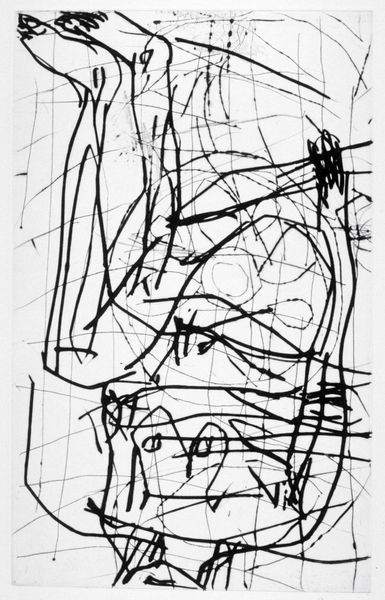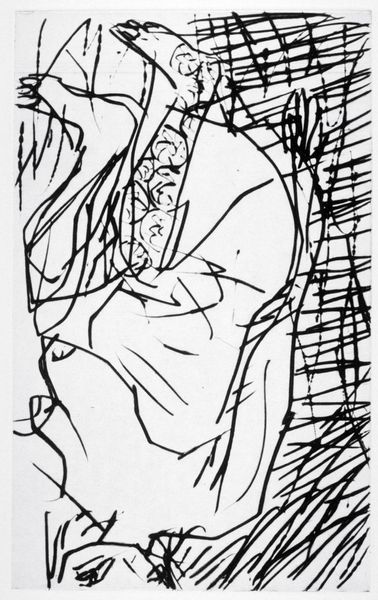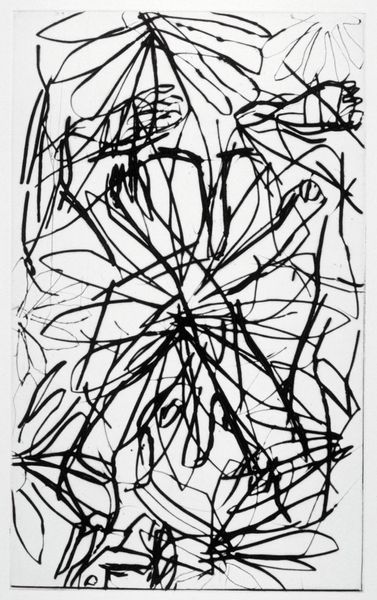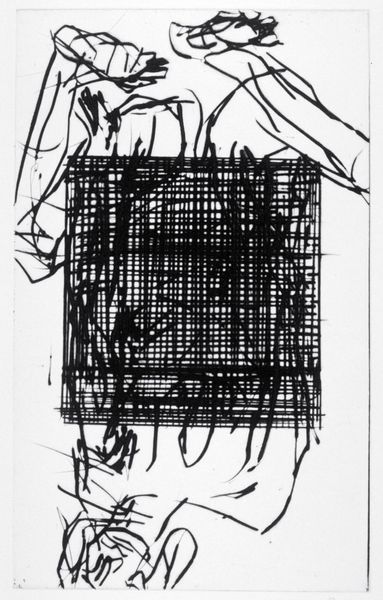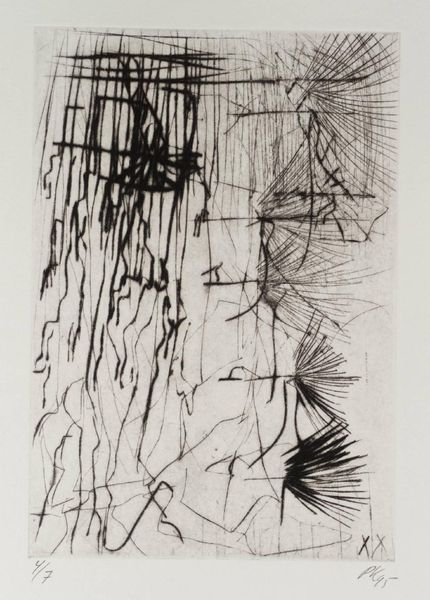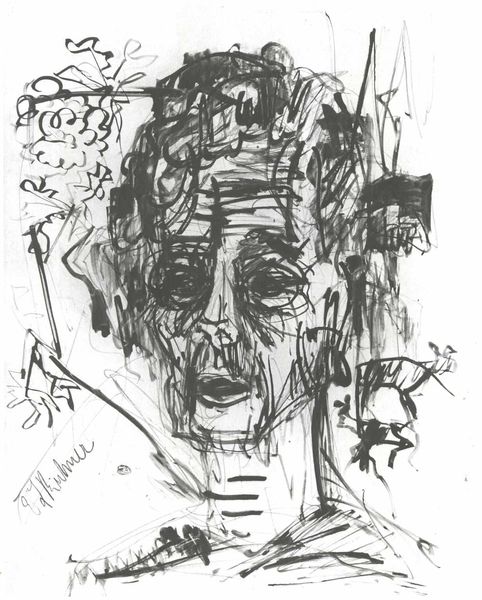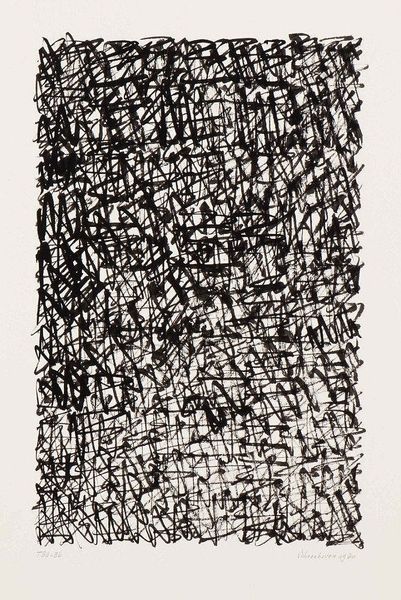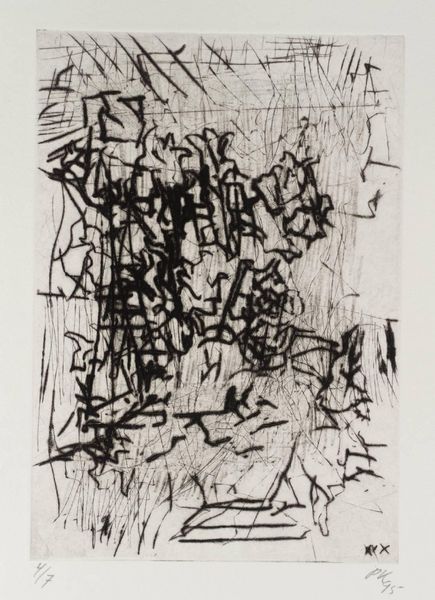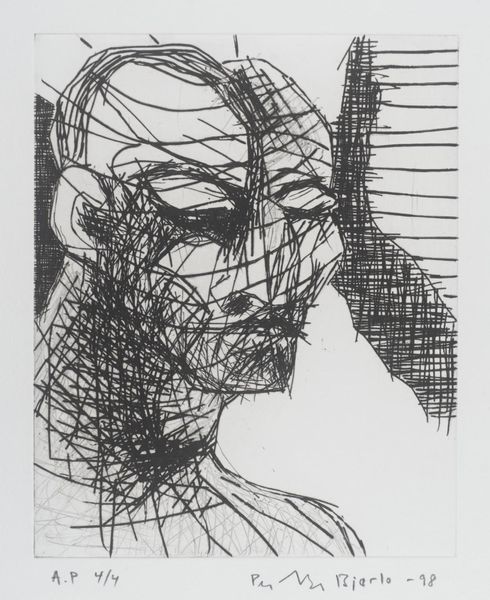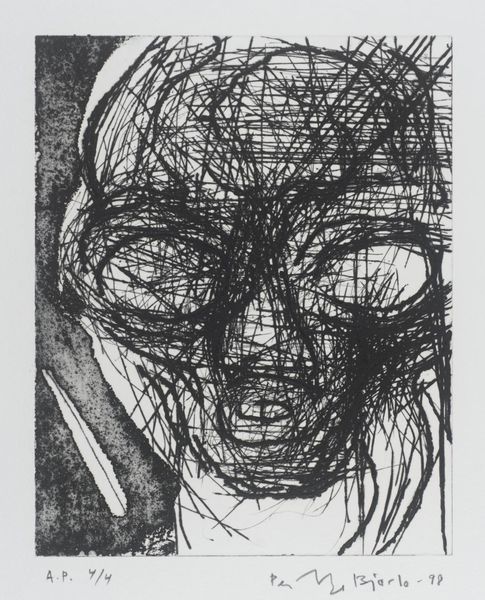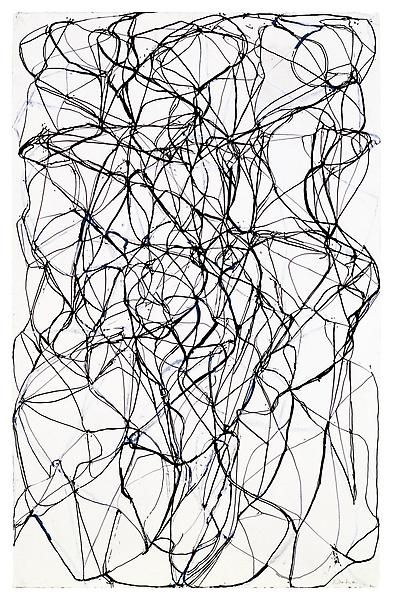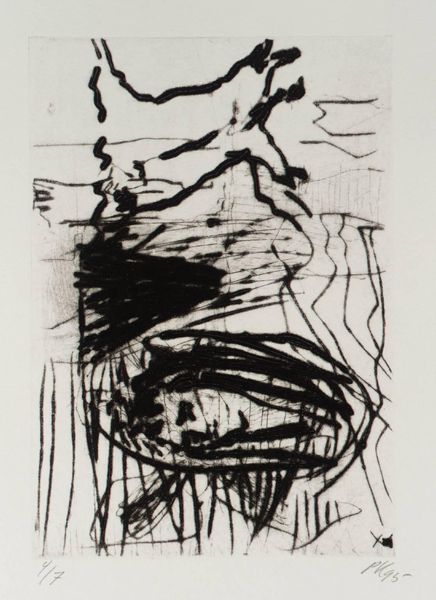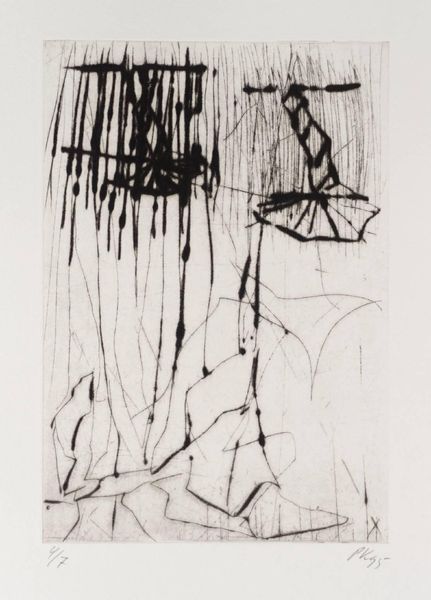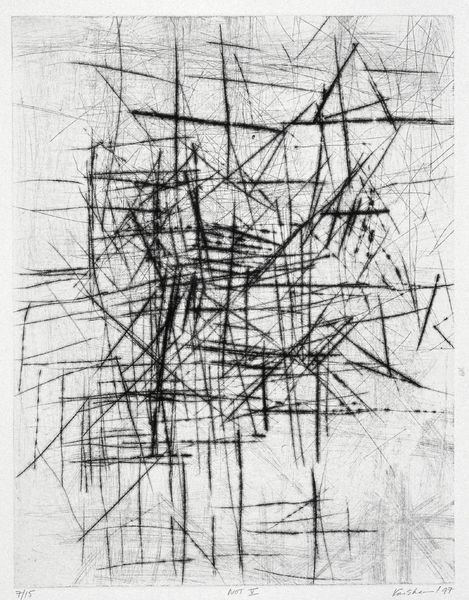![[no title] by Georg Baselitz](/_next/image?url=https%3A%2F%2Fd2w8kbdekdi1gv.cloudfront.net%2FeyJidWNrZXQiOiAiYXJ0ZXJhLWltYWdlcy1idWNrZXQiLCAia2V5IjogImFydHdvcmtzL2MzODVkMmM3LTQyYmQtNDlmNC04ZDI3LTBkMjUzMzZlMGY0MC9jMzg1ZDJjNy00MmJkLTQ5ZjQtOGQyNy0wZDI1MzM2ZTBmNDBfZnVsbC5qcGciLCAiZWRpdHMiOiB7InJlc2l6ZSI6IHsid2lkdGgiOiAxOTIwLCAiaGVpZ2h0IjogMTkyMCwgImZpdCI6ICJpbnNpZGUifX19&w=2048&q=75)
Dimensions: image: 287 x 177 mm mount: 561 x 409 x 4 mm
Copyright: © Georg Baselitz | CC-BY-NC-ND 4.0 DEED, Photo: Tate
Curator: This lithograph by Georg Baselitz is currently untitled, and it's part of the Tate Collections. Editor: Well, my first impression is controlled chaos. Like looking into someone’s wildly active mind, or maybe a bird's nest after a hurricane. Curator: That's a very evocative description. Given Baselitz's history, and the context of post-war German art, we can interpret this seemingly chaotic composition as a reflection of disrupted social and political structures. Editor: I see your point, and I feel that chaos, but also a kind of raw energy, a furious need to express something, even if it’s fragmented. Maybe that’s the real connection – the feeling of trying to rebuild after something’s shattered. Curator: Exactly. Baselitz often explored themes of fragmentation and reconstruction in his work, both on a personal and societal level. Editor: Makes you wonder what he was really feeling, doesn’t it? I guess we’ll never truly know, but that’s the beauty of art, isn't it? Curator: Indeed. It is a mirror reflecting our own interpretations back at us.
Comments
Join the conversation
Join millions of artists and users on Artera today and experience the ultimate creative platform.
tate 10 months ago
⋮
Baselitz’s vigorous and expressive style, influenced by the drawing and paintings of the mentally ill, often represents the body as a site of anxiety. This series of prints show a female figure crouching and twisted. The body is fragmented: in some works, the head is cropped, while others feature only isolated limbs. The hatched and scored quality adds to the sense of raw spontaneity and even violence. Many of the prints include flowers and vegetation which, with the use of greens and browns, suggest wild nature and fertility. Gallery label, July 2015
